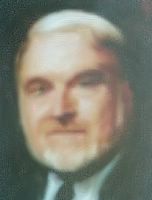
Mihaly Csikszentmihalyi

The internet is an amazing thing.
I can tell you the gist of what Professor Mihaly Csikszentmihalyi, more or less, is going to say as he closes the 2005 April ASCD Annual Conference later this year. This is because I listened to an interview on the web in which he was asked what he was going to say!
I have heard the Professor speak at a conference in New Zealand and he is always worth listening to. Csikszentmihalyi is one of the world’s leading authorities on the psychology of creativity and, in particular, developed the concept of ‘flow’ as a metaphor for this optimal mental state. Flow is always linked with circumstances of high challenge where personal skills are used to the utmost.
Mihaly talks about how the President ( of the USA) wants a 21stC education but that current reforms persist with the approach of filling kid’s heads with information. This, he says, is not a 21stC education. If we are concerned with issues of the future, he says, we will really need to have children who grow up really wanting to learn, who are curious, and who are eager to confront issues and problems. And that you can’t do this simply by raising standards, testing or whatever.
Mihalyi continues that it is clear that schools are unprepared for the diversity of students who enter: students distracted by videos and various forms of entertainment technology; and students who bring with them a range of divergent expectation from their families and communities.
What he wants to share with conference members at their closing session is how an understanding of ‘flow’ can ensure more positive learning experiences for students and teachers
‘Flow’ is the state people describe when they are fully involved in whatever they are doing. The concept came originally from studying artists and musicians and athletes, and then moved on to how this state can be experienced by people who love their work, and then on to students who really like what they are doing. Mihaly has found that if a child experiences ‘flow’ doing maths they do better at maths, even in traditional tests; and also that this sense of ‘flow’ gives the learner the confidence to tackle harder maths and not to give up. Even very gifted people, he says, if they don’t experience this enjoyment, often don’t continue. ‘Flow’, he says, is ‘engine that, that keeps people wanting to do something.’
It is, he concludes, referring to the title of the upcoming conference, all about ‘power and passion’. We know students have this passion within them when they enter school and that it can be unleashed. When it is tapped children can achieve amazing things. Without it, he says, the whole enterprise is inconclusive and without a sense of passion, a desire to learn, their future is at risk.
Mihayli talks about experiences that lead to a passionate interest and curiosity in learning. Things like music and drama, anything where the child can do things and where they have control over what they are doing. These thing are not peripheral Mihalyi says. Being involved in a theatre production can ignites children’s passions – maybe by acting, or being involved in the lighting, or sound, or by designing and building the scenery; anything where children think they are ‘making a difference’. And often it will involve learning maths or science in context to solve problems. All this develops a sense of ‘flow’.
Anything can achieve ‘flow’ but sitting and observing passively is difficult except for students who get excited about abstract learning. All extra curricula activities are important particularly for more practical students. Mihayli mentions that Howard Gardner’s theory of multiple intelligences provides valuable insights – that students can be ‘smart’ in a range of ways. Too often schools judge student’s capability on literacy and numeracy scores.
The important thing, he says, that:
‘We are developing potentially self managing, self organizing, and self enacting individuals (not just)little jars to fill up with information in an assembly line format. We need to understand that this is a matter of – I don’t want to be dramatic – but it is a matter of life and death, in the sense that our society depends on children growing up with energy, curiosity, interest. Once they have these, they will find out for themselves. They will find the knowledge on their own. That’s what I intend to talk about.’
Developing a school system to develop passion and 'flow' in students is a bit more than talking about a dry technocratic concept of ‘key competencies’!
If you haven’t visited the ASCD site it is worth doing so. It is a great source of professional development ideas; I recommend joining and receiving the magazines and books.
3 comments:
You are right, the A.S.C.D. is well worth joining. Great articles and relevant to NZ.
What Mihaly is saying is that the cuture is the thing where as we in NZ have focussed too much on ticking off objectives to prove we have taught something - but have they really learnt it?
Bit like the joke: 'I taught my dog to whistle'.
'Show me then.'
'I said I taught him - I didn't say he learnt it!
Too much of out time is spent proving we taught it - and not enough about worrying about if they enjoyed it and want to learn more!
Turning kids on to learning and helping them develop their talents is far better than all this emphasis on testing and targets. I'm all for getting kid caught up in the flow!
When schools focus on developing every learner's passions, dreams and talents we will be getting somewhere!
Post a Comment